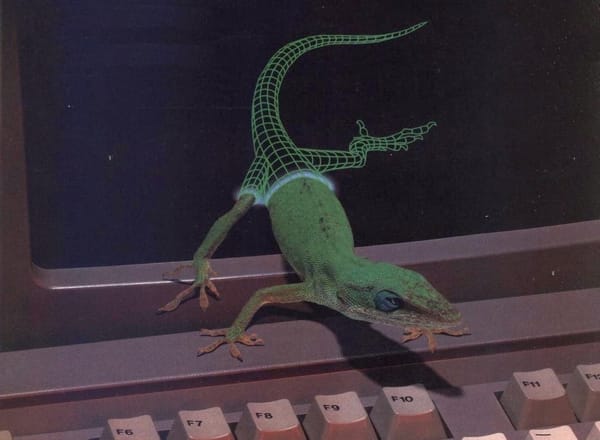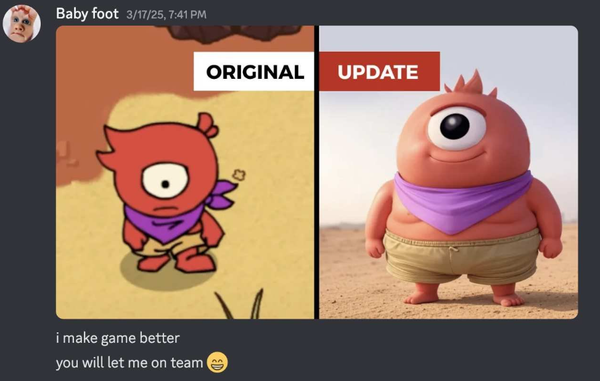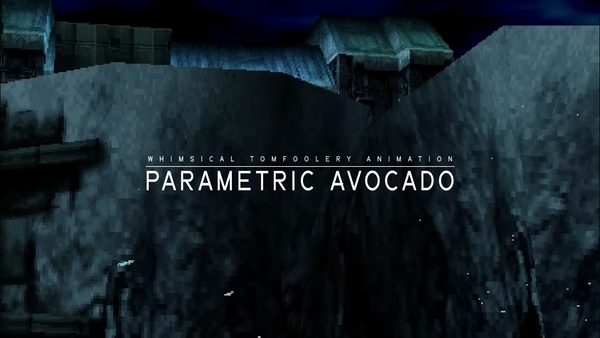Where is culture headed?

EX launched almost a year ago as a research report about where culture is headed. We have not yet answered that question, and neither will this essay, unfortunately. In the interest of fairness, I will share some guesses, but in order for them to make sense I have to first answer another, perhaps more pressing question: Where is culture writing headed?
And the answer to that is: straight to hell, if you look around. The media is undergoing what has been widely characterized as an "extinction-level event." Layoffs have rippled through Conde Nast, Vox Media, Business Insider, The Athletic, the Wall Street Journal, the Los Angeles Times, and many more. Vice Media is pivoting to nothingness, as is Complex. A freshly gutted Pitchfork is being repositioned as a sub-brand of GQ. AI-generated stories are appearing in once-hallowed publications like Sports Illustrated and my former employer, the A.V. Club. It’s easy to be pessimistic. Pretty much all of the big companies that once seemed like the promised land for journalists who grinded hard enough are now cratering.
In response, countless independent publications have emerged, including worker-owned success stories like Defector and 404 Media, and newsletter freight trains like Platformer and Garbage Day. The unifying principle of many of these is the same: That the journalists are the talent, the thing people are willing to pay for, and that the rest of the media infrastructure — the CMS platforms and account people and CEOs, and maybe even the layers of editorial oversight — were superfluous. EX, obviously, fits into this fold. Direct monetization through readers gives writers a lot of positive things, including financial stability and greater control of the presentation of their work, but the biggest one, to my mind, is that it frees them from the invisible hand of the attention economy. You are writing for readers, not algorithms.
My thinking about this last point is influenced, at least in part, by my time on staff at the A.V. Club. When I was hired as the site’s first internet-culture editor in 2016, many of the site’s passionate commenters hated my guts. My purview was a viral-content section, launched on a whim years previously, which had steadily grown to dominate the site’s traffic rankings. It had never had a dedicated or particularly interested editor before, and my mandate was to make the whole thing slightly less embarrassing. To the commentariat, this represented the latest and perhaps most egregious betrayal of the site’s core appeal: longform critical writing about culture by and for deeply passionate fans.
My pitch to the editors with whom I interviewed was to treat the internet as culture, as something you could have taste in. To attempt to create an internet canon — to make internet snobbery as easy to understand as film or music snobbery. (I use these terms affectionately, as did the A.V. Club, which once bore the motto “turning fans into snobs.”) I would say I was probably not successful, in my two years on the gig, in codifying internet culture as such. Desperate to remain employed at what was once my dream job, I wrote a lot of stupid shit about the Trump family, all of which did just gangbusters traffic numbers and bought me reality-show style immunity through multiple rounds of buyouts and layoffs. By the time I was offered a job back in the marketing world, many of the editors on staff I had grown up reading had left the site, which was now hosted on a blogging platform totally ill-suited for it. Even the commenters who didn't like me were gone. The A.V. Club’s future seemed remarkably bleak.
Today, the A.V. Club is unrecognizable, both in terms of bylines and editorial mission. (A recent job listing for an editor in chief position demanded expertise in “Marvel casting updates”.) Most of the remaining staff I knew walked out en masse when corporate demanded they move to L.A., a mandate which jettisoned the deeply midwestern sensibility that had long defined the site in favor of slimy access journalism. It has always bothered me that the A.V. Club didn’t get its own Adults In The Room-style sendoff; for a beloved, decades-old institution that launched countless writing careers and helped define an era of culture writing online, it deserved more. But like so many other once-great outlets, it dodders on, godless and deranged, in search of its next algorithmic fix. Anyway, such a piece would not be for me, a lowly internet-culture editor, to write. After all, the commenters were right: I was a relevant data point on the site’s slide into oblivion.
But I haven’t been able to shake the idea that having taste in the internet is a worthwhile endeavor. We already all do: cycling through channels and platforms, recognizing algorithmic changes, following creators between phases. I actually think having taste in the internet is only becoming more important. Not only is the media crumbling, but so too are many of the structural platforms that have defined our experience of the internet. Twitter isn’t dying but our conception of it as a town square has, splintering conversations into multiple competitors, each with their own subcultures. Communities are going underground, privatized; search can’t index Discord. A.I.-generated chum has gunked up much of the visible internet already, and its like will only grow, feeding on itself as the technology’s capabilities are fundamentally misunderstood by the tedious people.
But, at the risk of sounding optimistic, I do not think that the internet is going to die as a result of any of these trendlines. I think it is merely going to transform. People are not going to stop using the internet, but instead start to use it in different ways, gravitating to platforms and outlets which provide solutions and alternatives to these problems. This indicates a particularly ripe time to be intentional about how we engage with the internet and what we find interesting on it. (Embedded’s “My Internet” project is a valiant effort, in this regard.)
Of course, what I’m interested in doing with EX is not figuring out where internet culture is headed but where culture itself is headed. To me, the two are inextricable. But what I am really interested in is the stuff. I am really interested in output: creative work, records, writing, videos, interactive things, digital performances, creative software, even monolithic drivers like films and TV shows. I am interested less in people and platforms and more in output explicitly intended as culture. I am also, to be clear, interested in output that is not intended as culture but happens to rise to that level. EX’s weekly digest tracks trendlines and narratives along these lines, while our monthly recommendation send more explicitly curates and recommends discrete cultural output. I’m not sure if either editorial format is perfect for tracking where culture is headed – and, to be clear, Pao and Chris have different but complementary interests, both equally driving the shape of what we publish – but it’s a start. One of the things I’m most excited to work on this year is an interview series asking other people these same questions: Where is culture headed? What artwork reflects that? Recommendations from actual people with interesting taste will never get old, at least to me.
So, to put the original question to myself: where is culture headed? I have my theories. I think it involves games, a third space which has colonized the dreams and ambitions of multiple generations. I think music has transformed into a passive source of identity, becoming even more important, in some ways, than when it drove a monoculture. I think both of these mediums merge in the internet’s eldritch underdark, resurfacing in strange new forms on video platforms. I think A.I. is ripe for subversion. I think that the enshittification of the web and the intensifying climate crisis will drive cultural sensibilities back toward more analog, handcrafted, sustainable, and human pleasures, including live music, IRL gaming, lofi computing, and more intentional media consumption. I think media that emphasizes curation, data, and reporting will thrive in this ecosystem. I think culture writing can take cues from the best fashion writing, like Blackbird Spyplane, treating it as a fundamental part of living a worthwhile life. In this sense, I think culture writing can strive to be useful.
The A.V. Club, when it was good, was so goddamn useful. I used it to find new movies and old interviews and writing that reflected thoughts I hadn’t been able to put words to yet. I could lose hours sorting and scouring the archives, savoring and disagreeing with lists of arcana. Pitchfork’s signature editorial convention – the Best New Music tag – recast their entire highfalutin critical apparatus in utilitarian terms. It codified discrete cultural output as uniquely indicative of the current moment, and maybe the next one, too. How useful! I hope EX is useful. I hope it surfaces interesting things. I hope I can explore and stress-test my ideas above about where culture is headed, and get the opinions and recommendations of other people who think seriously – perhaps obsessively – about these things. Maybe I am optimistic. As long as there is culture, it will be useful for people to write about it, think about it, curate it, and argue about it – because that's culture, too.
EX is an attempt to build something small and sustainable. I don’t expect to answer the question at the top of this article, in other words, but I’ll wake up ready to keep trying for as long as I can.
///
If you liked reading this, you can help support EX.
- If you don’t already subscribe, you can do so in that little box above. (If you already subscribe, you won't see a little box.)
- If you do subscribe but want more EX, you can follow us on X, Threads, and Bluesky.
- If you already subscribe, you can pass it along to friends. This post is a great starter, but so are these.
- If you want to support us directly, you can also pledge a paid subscription. We intend to keep all EX content free for as long as makes sense, but we have turned on donations for people who want to help us directly. If you haven't subscribed yet, just pick the Donation tier when subscribing. If you're already a subscriber, click on Account and then View Plans.






